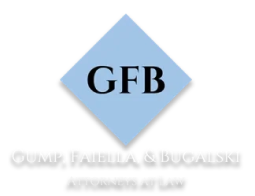Social media is one of the most popular ways to communicate. Digital communcation via email, text and other applications is common. Unfortunately, in legal proceedings, social media and other forms of digital communications may be obtained by your opponent and used as evidence at trial.
While there are many positive things about social media, and modern communication the following guidelines will help you avoid some of the common pitfalls involving social media and digital communications in legal matters.
- Do not discuss your case with others through any medium. Email can be forwarded or printed, postings on Facebook are seen by the public, photos can be taken out of context, and texting on phones all are considered statements released to the public.
- Friends and family members have no obligation to keep your communications confidential. Do not communicate with your lawyers on a device provided by your employer or shared with someone else.
- Create a private email account and use a password for that account accessible only by you.
- If someone else knows your passwords for private accounts, create new passwords.
- If you have children, make sure you know the accounts and devices they can access. Don’t forget that accounts may be accessible on an old device given to your child.
- Do not comment on blogs or public forums about your case or your feelings towards others.
- Examine the privacy settings on your Facebook and other digital accounts. Be sure you know what content public and what content is is private. Keep in mind that no electronic or written content is truly ever private.
- Do not access social media accounts, phones, email accounts, or electronic devices that don’t belong to you. Do not send messages from an account that doesn’t belong to you or pretending to be another person. Doing so could be a crime or subject you to civil liability.
- Do not ask friends or family to “friend” adverse parties so that they can obtain information about that person.
- If you receive concerning electronic communications from an adverse party, document the information and talk with your lawyers.
In moments of anger or frustration people sometimes say stupid things. Don’t document it and let the other side use it against you.
Think before you post; think before you click “send.”
Avoid posting negative information about the opposing party. Venting on social media may hurt your credibility. Statements that are not based in fact or exaggerated could be used to make you look poorly later in front of a judge or jury.
Do not believe that your social media and digital communications are unreachable. You can be legally obligated to turn over these items in the discovery process. Some types of digital information can be obtained by subpoena from third parties such as a phone company or internet service provider.
Following these tips will help you mitigate any potential damage from social media and other digital communications. When in doubt, ask your lawyers before communicating through any medium.
If you have questions about these issues related to your specific legal situation please contact us at 1-888-262-2718 or at info@tgflaw.com
The post Social Media Can Effect Your Legal Case appeared first on Gump & Faiella, LLC | Missouri.

